Are you over-burdened by the needs, desires, expectations and emotions of people around you? Do setting healthy and strong boundaries feel impossible for you? If so, you may be experiencing enmeshment trauma. But what is enmeshment trauma and how to heal enmeshment trauma? Let’s find out.
What is Enmeshment Trauma?
Enmeshment trauma is a psychological condition that arises from extreme closeness and blurred boundaries in relationships, making you feel overwhelmed and detached from your own self.
It is a form of psychological distress caused by an unhealthy relationship where there is no individuality. It usually occurs in dysfunctional families but can also be observed in romantic relationships and even friendships.
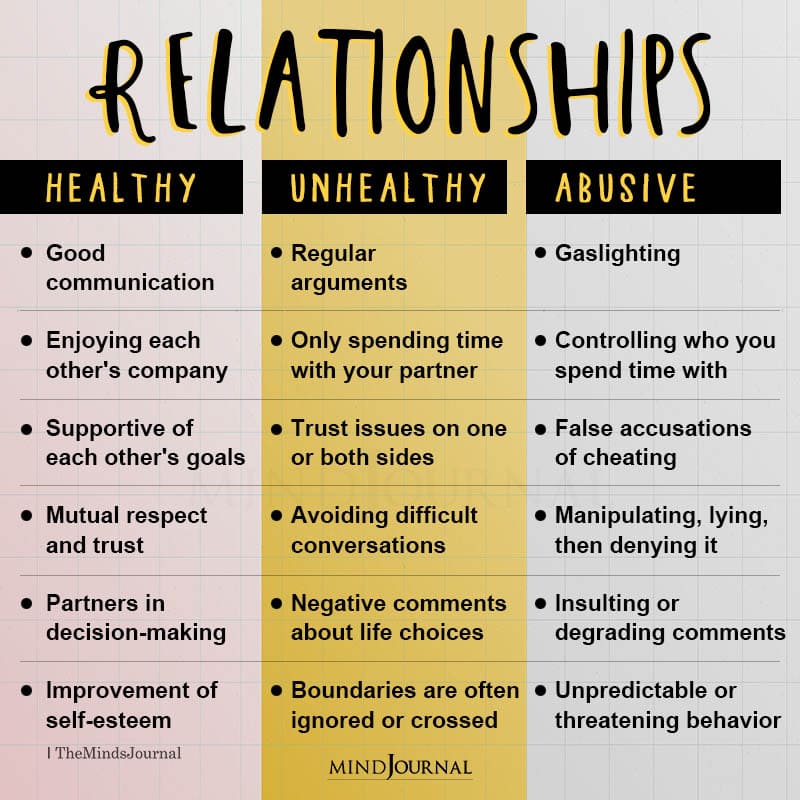
In this form of relationship, individual identities get merged together while personal boundaries become obscure, leaving no space for self-determination or self-expression. It often leads to loss of identity, emotional dependency and feeling controlled or smothered by others.
Related: What Is Emotional Incest: Understanding The Hidden Dynamics and Its Impact On Relationships
What Enmeshment Trauma Looks Like: Jessie’s Story
Jessie, a 25-year-old woman, grew up in an enmeshed family system that significantly impacted her sense of individuality and autonomy. In her family, boundaries were nonexistent, and personal identities were often overshadowed by the needs and expectations of others.
Jessie’s parents, Sarah and Mark, struggled with their individual unresolved emotional issues from their childhood. Hence, they relied on their daughter as an emotional aid. They openly discussed their marital problems, financial strains & personal insecurities with Jessie, as if she was their equal.
Jessie felt seriously burdened and crippled by this emotional weight, believing it was her duty to help and solve her parents’ problems and maintain a healthy dynamic in the family.
As Jessie became older, her parents became increasingly emotionally dependent on her. They manipulated and guilt-tripped her into sacrificing her own needs to meet theirs. For instance, whenever she tried to sleepover at a friend’s house or spend time pursuing her hobbies, her parents would become disheartened. This made her feel guilty about prioritizing her own needs over her parents’.
Family enmeshment also resulted in poor relations between Jessie and her siblings. Instead of promoting healthy relationships among siblings, jealousy was part of the fabric of her family.
As Sarah and Mark’s children were constantly fulfilling their parent’s unmet needs instead of their own, it led to an intense feeling of inadequacy and a lack of support for each other’s individual pursuits.
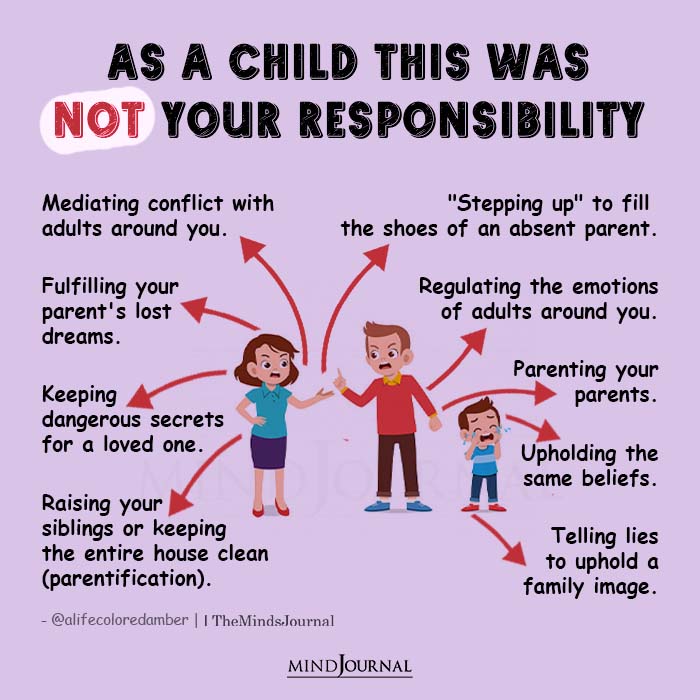
Enmeshment trauma accompanied Jessie into adulthood where setting boundaries became a problem resulting in poor sense of self. Fearing judgment or being rejected made it hard for her to make decisions alone. Moreover, the fear of losing her identity in relationships made her afraid of committing to intimate relationships.
After Jessie went through therapy, she started to recognize the consequences of enmeshment in her life. Therapy has helped her learn how to set, prioritize her needs and practice self-love and self-care. Over time, Jessie was able to recover from enmeshment trauma and gain control back over her life.
Related: Codependency or Love? 8 Signs Of Enmeshment In Romantic Relationships
Enmeshment trauma within a family can blur boundaries, suppress individuality and inhibit healthy emotional development. This highlights the need for recognition and treatment of enmeshment dynamics to enable people like Jessie to live a happier life and build healthier relationships.
Enmeshment Trauma Symptoms You Should Know About
Are you suffering from enmeshment trauma? While knowing what is enmeshment trauma is important, it is also important that we learn to identify the red flags and subtle signs of this psychological phenomenon.
Here are some of the most common enmeshment trauma symptoms you must learn to identify –
1. Lack of personal boundaries
Those who suffer from enmeshment trauma frequently face difficulties establishing appropriate personal boundaries. They might feel responsible for meeting other people’s needs at the expense of their own well-being, leading to a constant feeling of resentment, overwhelm and self-neglect.
2. Identity confusion
The line between your self identity and that of others can often get blurred due to enmeshment. This can lead to a loss of personal values, beliefs, opinions and interests.
This happens because it becomes difficult for them to separate their own desires and expectations from that of others around them.
3. Emotional dependency
Those dealing with entanglement often feel a constant need for validation and approval from others to feel worthy. These individuals typically fear rejection and abandonment, resulting in a strong need for reassurance and an inability to make the right decisions by themselves.
4. Difficulty with intimacy
Surprisingly enough, people who struggle with setting boundaries may not be able to form or sustain healthy intimate connections. The fear of losing their identity in the relationship may sometimes affect their ability to trust and build a healthy and balanced relationship.
5. Emotional dysregulation
Enmeshment trauma can cause emotional dysregulation, which is characterized by intense mood swings, anxiety, or depression. Suppressing your emotions or feeling responsible for others’ needs & emotions can lead to a state of constant emotional turmoil.
Related: 10 Signs Of Toxic Family Enmeshment And How It May Impact You As An Adult
Factors That Lead to the Development of Enmeshment Trauma
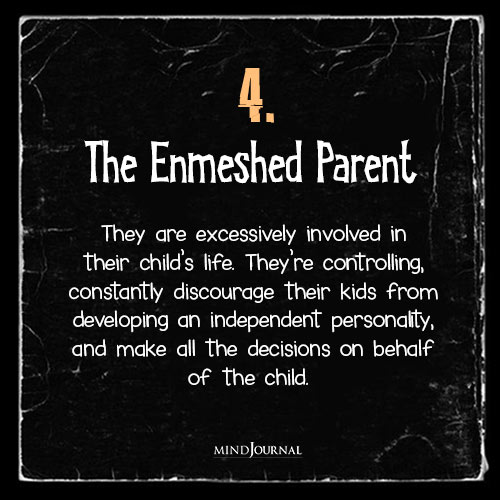
Wondering what exactly leads to enmeshment trauma? In order to know how to heal enmeshment trauma, we need to truly understand the underlying reasons for the development of this psychological distress. Here are some the basic contributing factors –
1. Family dynamics
Enmeshment trauma frequently originates from unhealthy boundaries and emotional fusion within family settings. It can occur due to overprotective or controlling parenting styles, parental neglect, or even due enmeshment patterns between parents themselves.
2. Codependency
Enmeshment trauma occurs in codependent relationships where a person’s emotional well-being depends on another individual. Such relationships are typically colored by enabling behaviors and feeling overly responsible for how the other person feels or how they behave.
3. Cultural and societal influences
Some cultures or societal norms may prefer collectivism against individualism. This can put additional pressure on a person to sacrifice their self-interests for the sake of the group or family. These cultural expectations can often lead to enmeshment trauma.
6 Tips on How to Heal Enmeshment Trauma
Whether we like to admit it or not, most relationships often tend to involve some form of enmeshment due to various reasons. However, when we are unable to identify the signs and live in denial, enmeshment can severely damage not only our relationship, but also our emotional and mental well-being.
This is why it is crucial that we learn how to heal enmeshment trauma. Here are some quick tips that can help you overcome such unhealthy patterns and build healthier relationships –
1. Recognize and acknowledge the trauma
Identifying and accepting that you are experiencing enmeshment trauma is the first and most important step towards recovery. Knowing the root causes and its impact on your life can help you on your journey to overcome it, regain your autonomy and build healthier relationships.
Related: What Is A Trauma Bond? 10 Signs Of Trauma Bonding
2. Establish Boundaries
Enmeshment trauma can only be healed when you learn how to establish and maintain strong and healthy boundaries. This includes recognizing your needs, expressing them in a positive and assertive manner, and respecting the boundaries of others.
3. Cultivate self-awareness
Focus on understanding your own desires, needs, and values to heal from enmeshment trauma. You can do this by seeking therapy, journaling and engaging in self-reflection. Using strategies to improve your self-awareness and reconnecting with your inner self can also be highly beneficial.
4. Seek therapy
This may include therapies such as cognitive-behavioral therapy (CBT), dialectical behavior therapy (DBT), or other trauma-focused therapies. These treatment approaches help to address core beliefs, promote coping skills and emotional regulation.

5. Practice self-care
Seek support from a therapist experienced in trauma and attachment-related issues. They can provide you the necessary assistance needed to recover from enmeshment trauma.
It’s important to prioritize yourself and focus on self-care. Take steps to improve your physical, mental and emotional well-being. You can also engage in activities that bring joy to your life, practice mindfulness, follow a healthy lifestyle and seek help from people who understand and care about you.
6. Build healthy relationships
As you start recovering from enmeshment trauma, it is crucial to form healthy relationships that rely on individual autonomy, mutual respect and trust.
Talk to trusted loved ones and friends who will support you and reach out to others experiencing similar situations by joining support groups. They can help you gain a new perspective and provide support. Interdependence is better than enmeshment.
Takeaway
Enmeshment trauma can seriously affect a person’s sense of self-identity, relationships & overall well-being. It is essential that we recognize the symptoms and take steps towards healing to regain autonomy and develop healthy connections.
Remember that healing takes time and effort, but with therapy, support from loved ones, self-awareness and self-care you can overcome enmeshment trauma and build a more positive life filled with authentic self-expression, healthy boundaries, and healthier relationships.
Related: Lack Of Individuation: From Codependent Chameleon To True Self
Frequently Asked Questions (FAQs):
What are signs of enmeshment?
Lack of boundaries, overdependence, emotional fusion and blurred identities indicate enmeshment in relationships.
How do you resolve enmeshment trauma?
Seek therapy, establish boundaries, and cultivate individuality to deal with enmeshment trauma.
What are the consequences of an enmeshed family?
Restricted autonomy, identity issues, and challenges in forming healthy relationships result from enmeshed family dynamics.
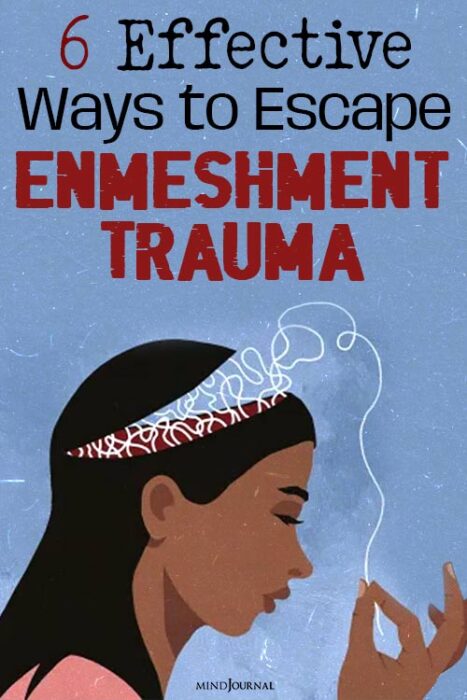
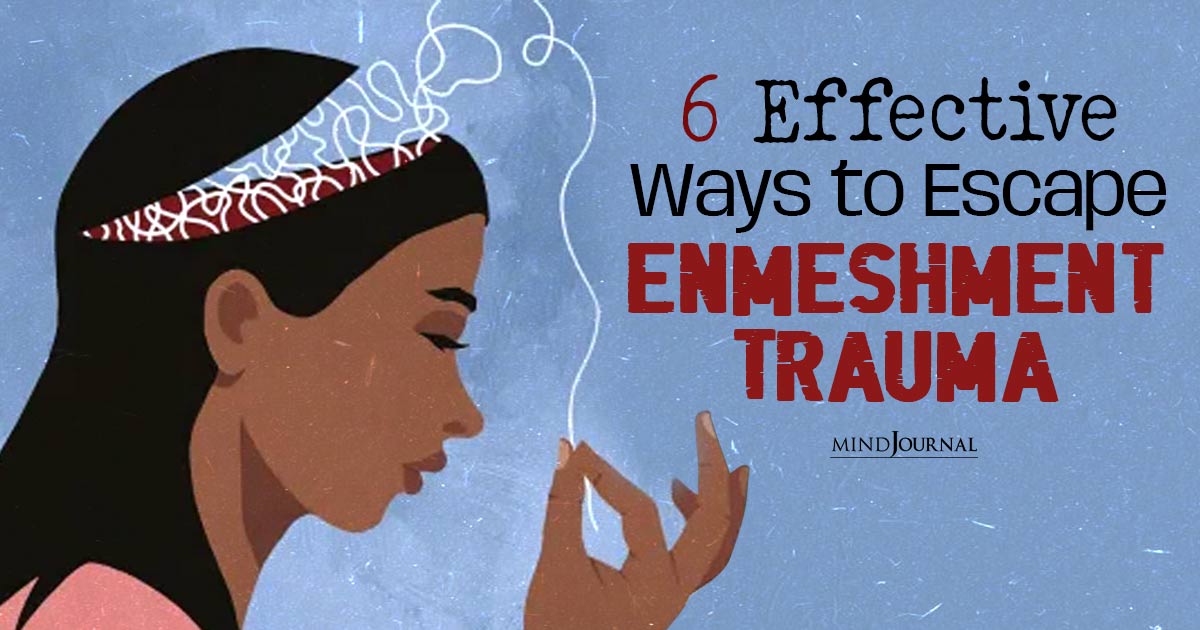





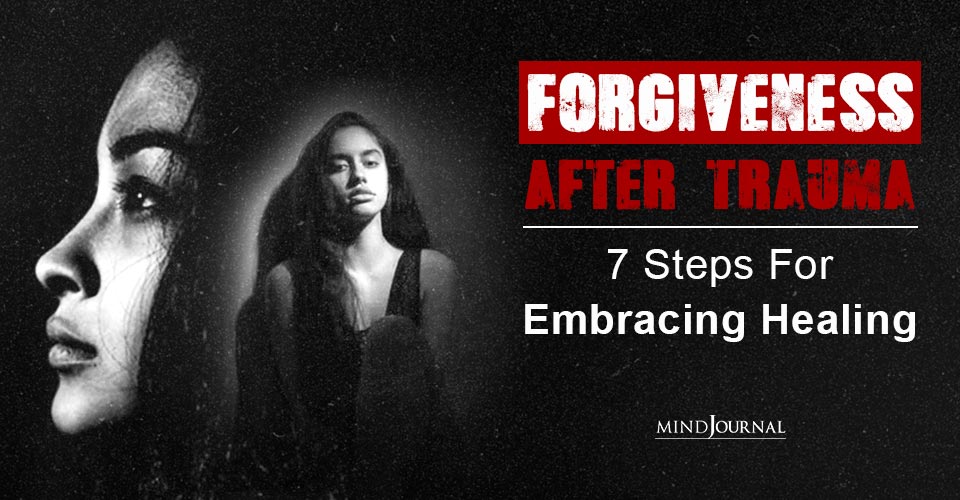

Leave a Reply
You must be logged in to post a comment.